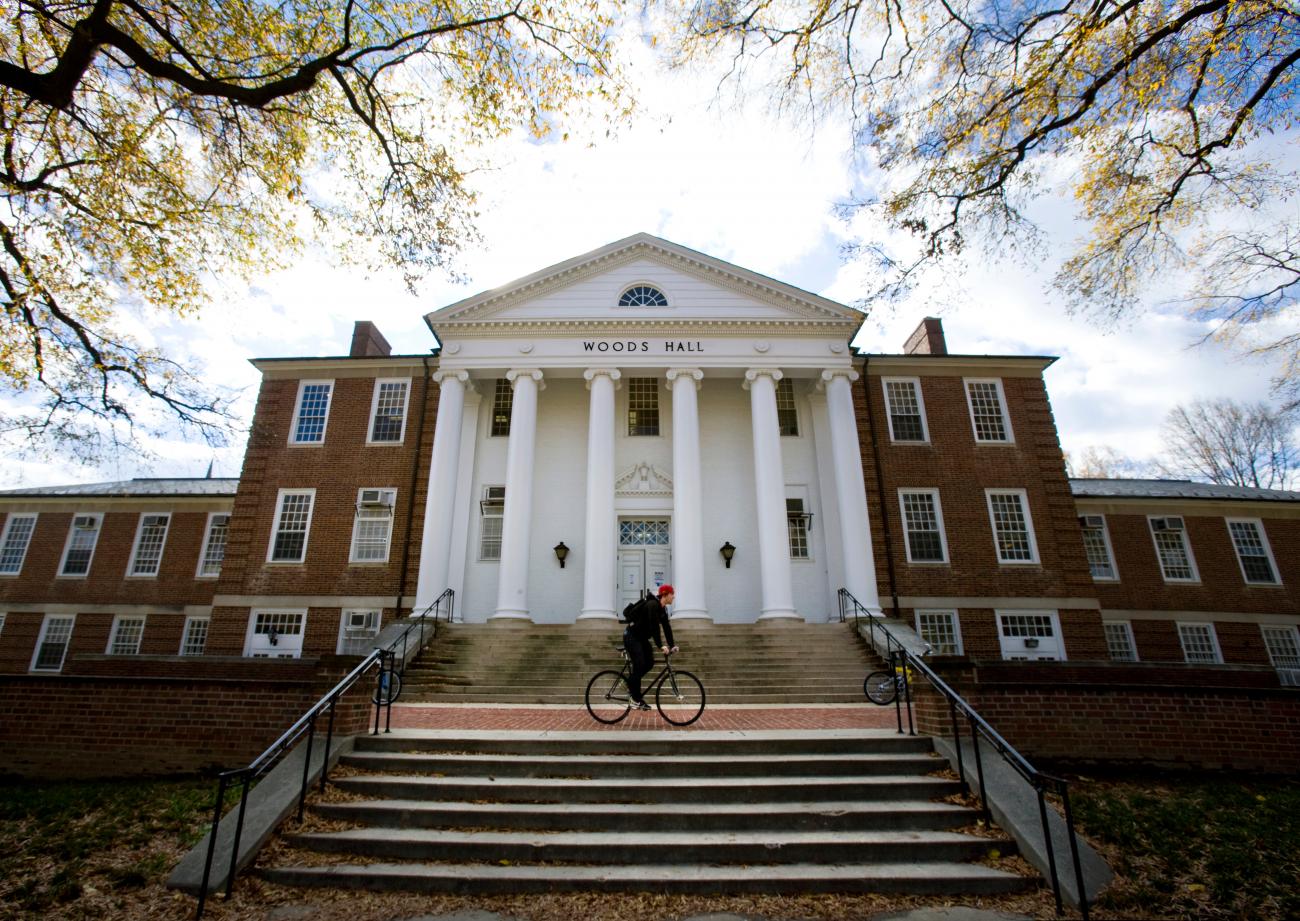UMD lecturer and Blue Fern Travel co-founder Stefan Woehlke has combined his passions for food, history and culture to build a unique career dedicated to sharing untold stories of diverse communities.
Woehlke and his wife Mary Collins founded the small food tour company six years ago under the name Carpe D.C., rebranding last year as Blue Fern Travel amid their expansions beyond D.C. and outside the food industry.
“It’s been a long journey,” Woehlke said. “It started with my wife and I and our own travels and some of the social issues we saw while traveling. Travel is always talked about as being an economic engine, but the way that money is distributed within communities while traveling is definitely not equitable.”
Throughout their years traveling internationally, Woehlke and Collins noticed the potential for the travel industry to make positive impacts in local communities, but knew tourist dollars weren’t being funneled into small businesses. Once back home, the couple’s initial plans to open a hostel in Washington, D.C. were replaced with an idea for a food tour business that explored often-overlooked neighborhoods and histories in the city.
“Talking with one another, we realized that the moments in our travel experience that really stood out the most and felt the most connected with locals were over food,” Woehlke explained. “We realized that food tours might be a good way to get people into parts of Washington, D.C. that they weren’t otherwise visiting—and to get money directly into the hands of local businesses and their employees."
Blue Fern Travel’s tours have since become experiences that simultaneously strive to support small and minority-owned businesses, provide for local community members, reveal the District’s rich history and introduce both tourists and locals alike to good food.
“The majority of our partners are minority and women-owned businesses,” Woehlke said, going on to describe their recent project Black Box D.C., a promotion collection of products featuring six Black-owned businesses for buyers to sample. All profits went to Campaign Zero, an organization focused on police reform and combating police brutality.
The company also partners with Bread for the City, a nonprofit founded as a food and clothing bank which has grown to provide free services from dentistry to legal aid services to mental health amenities to eligible D.C. residents. For every tour Blue Fern Travel gives, the nonprofit receives funds to supply three separate meals.
“Through our partnership with Bread for the City, we’ve been able to provide enough funding to pay for about 26,000 meals in the last six years, since the start of our business,” Woehlke said. “Just by people going on tours with us and exploring the city.
And by taking the opportunity to explore the city, Blue Fern Travel’s guests are accordingly familiarized with its vibrant history, one that even longtime residents of D.C. often don’t fully know.
“We focus a lot on telling the stories of people of color and women throughout the history of the District,” Woehlke said. “Really telling the whole story, which is an intersectional story—so it’s not about telling separate histories of white people’s history of D.C. and Black people’s history of D.C. It’s about telling the history of D.C. in the way that all of these people have contributed to it.
Woehlke, who works at UMD full-time as a lecturer in the Department of Anthropology,, spends his evenings and weekends researching and designing tours that raise awareness about important figures and events in the District--stories not generally included in typical tour experiences.
“If we didn’t talk about any of those things, we’d really be doing a disservice to the people who have lived here in the past and their descendants, who still live here today,” Woehlke said.
But the disservice would also be to a greater community that has never truly been confined to the District’s borders, as Woehlke has discovered time and time again through his archeological research. His dissertation for his master’s degree in Anthropology, completed just last November, focused on changes to the African American community in Orange County, Virginia—where Montpelier, James Madison’s family’s plantation house, is located. He found that descendants from the county still reside in the D.C. area today, some living only a couple miles away from his own home, familiar with the very neighborhoods he guides tours through.
“There are a lot of interesting connections,” Woehlke said of his anthropology research and his tour company. “Members of the descendant community from Orange County would tell me stories about their parents having their honeymoon on U Street in Washington D.C., which was known as Black Broadway. There are a lot of connections which I didn’t anticipate—but should have anticipated.”
Woehlke now works for the Historical Preservation Program in the UMD Department of Anthropology where he runs an archeology lab and helps with a site analysis of Kippax Plantation in southeast Virginia. His projects in the fields of digital heritage and historical archeology involve 3D documentation of heritage and archeology sites and curating their representation and interpretation into virtual and online environments. This semester, Woehlke is teaching a course on 3D documenting and collecting site information through laser scanning and photogrammetry.
While the pandemic has thrown plenty of obstacles at Blue Fern Travel, Woehlke appreciates the enduring opportunity to support the local food industry and those who run it.
“For a lot of food tours, it’s really only about the food,” he said. “But for us, the food is really a vehicle for telling much bigger stories.”



